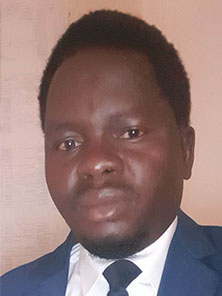By Gama Hassan Oscas
In a nation where justice is meant to be blind and impartial, the stark reality of Juba’s prison system presents a chilling contrast. This legal opinion piece delves into the deeply troubling phenomenon where the underprivileged and marginalized form the majority of Juba’s central prison inmates.
This situation raises serious questions about the fairness and integrity of the justice system, as the wealthy and well-connected continue to evade the clutches of justice even after committing heinous crimes. This analysis offers a trenchant critique of the systemic disparities, endemic corruption, and flagrant impunity that have transformed Juba’s prison into a bastion of inequality and injustice.
At the heart of the issue lies the glaring socioeconomic divide that plagues South Sudan. This chasm is reflected with alarming clarity within Juba’s prison population. The prison system has become a stark reminder of the economic disparities that persist in the nation, as the poor and marginalized are disproportionately represented behind bars. The underprivileged, who lack the financial resources to secure proper legal representation or maneuver through the labyrinthine corridors of power, find themselves ensnared by the system.
The stories of the rich and influential escaping the clutches of justice are more than mere anecdotes; they are emblematic of a system that favors wealth over morality. The stark reality is that the wealthy elite in South Sudan seem to possess a get-out-of-jail card, even for the most egregious crimes. Murder, rape, and other heinous offenses are treated with shocking leniency when committed by individuals with financial power. The disheartening consequence is the virtual erosion of the principle that all individuals, regardless of their economic status, are equal before the law.
An instance that has gained notoriety involves an individual sentenced to 14 years in prison, only to be seen sipping tea in a public gathering few days after their sentencing. This starkly exposes the porousness of the justice system and the blatant disregard for the sanctity of the law.
Such occurrences, which defy all notions of justice and fairness, are a testament to the influence of money and power in undermining the rule of law.
The corrosive influence of corruption has permeated every facet of the justice system. Allegations of bribery, collusion, and manipulation of legal proceedings are rampant, leaving ordinary citizens disillusioned with the very institutions meant to protect them. It is no coincidence that the wealthy are able to navigate this labyrinth of corruption with ease, securing their freedom even after committing heinous crimes. The justice system, which should serve as a bulwark against the erosion of societal norms, has regrettably become a tool for perpetuating inequality and oppression.
The tragic consequence of this deeply unequal system is the perpetuation of a cycle of poverty, crime, and societal unrest. The poor, deprived of meaningful opportunities for socio-economic mobility, often resort to criminal activities as a means of survival. As a result, minor offenses such as theft land them in overcrowded prisons, while the rich continue to flaunt their wealth and engage in criminal behavior without facing any substantive consequences. This imbalance is not only unjust but serves as a breeding ground for continued criminality, ultimately leading to further societal disintegration.
To rectify the pervasive injustices within Juba’s prison system, a comprehensive overhaul is necessary. Immediate attention must be directed toward eradicating corruption within law enforcement, judiciary, and the legal profession. Transparency, accountability, and stringent measures against those who exploit their positions for personal gain are essential in restoring faith in the justice system.
Furthermore, public defenders and legal aid mechanisms must be strengthened to ensure that individuals from all walks of life have access to competent legal representation. This includes measures to prevent undue influence from powerful individuals on legal proceedings and sentencing.
Juba’s prison system stands as a stark indictment of a society in which wealth and power dictate the course of justice. The glaring disparities, rampant corruption, and shocking impunity erode the very foundation of a fair and just society. If South Sudan is to rise above its tumultuous history and chart a path toward progress, the urgent need for reform within its justice system cannot be overstated. It is time to dismantle the structures that perpetuate inequality and offer redemption to a society that has for too long suffered the consequences of a two-tiered legal system. Only through unwavering commitment to justice, accountability, and the rule of law can South Sudan hope to restore dignity and equality to its citizens, irrespective of their economic status.
The author of this article is an advocate and can be reached on email at: oscarsgama@gmail.com



